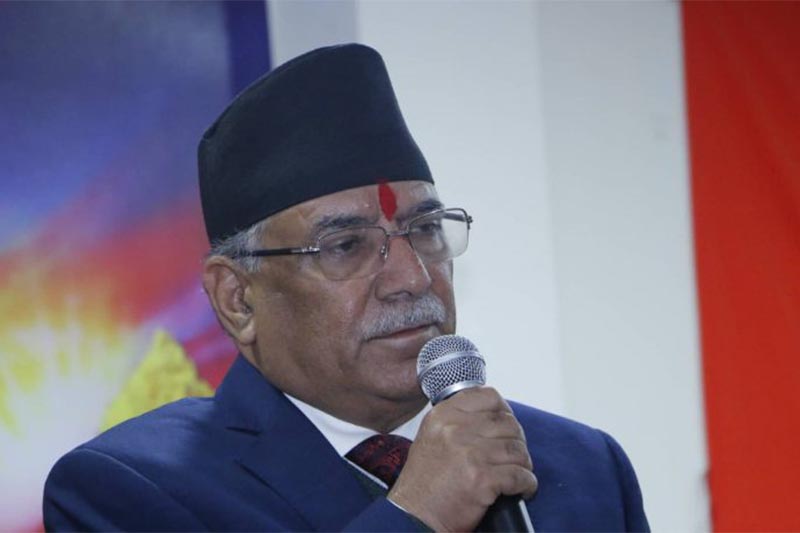PM stays away from People’s War Day event
Kathmandu, February 13
Prime Minister KP Sharma Oli was conspicuously absent at the programme organised by his party at the party headquarters here today to mark People's War Day.
Co-chair of the ruling Nepal Communist Party (NCP) Pushpa Kamal Dahal, who had led the Maoist war before his party CPN-Maoist Centre joined mainstream politics in 2006, was present at the programme.
Although PM’s Press Advisor Surya Thapa said the PM could not attend the programme as he was busy with the review of his two years in office, NCP leaders who were associated with the former CPN-Maoist Centre see the PM’s absence as a manifestation of his opposition to the people’s war.
NCP leader Mani Thapa, who was with the CPN-Maoist Centre before the party merged with the CPN-UML to create NCP, said that the PM had conveyed the message that he would attend the programme and yet he did not show up. “It shows that the PM is not interested in marking the people’s war,” he said. PM Oli had strongly criticised the Maoists for launching armed struggle against the state.
Thapa said party documents had accepted the contribution of both ‘people’s war’ and ‘popular movement’ and nobody should have any doubt about the contribution of people’s war to Nepal’s politics. “February 13 holds special significance for us. The Maoists had raised arms against the state pledging to lay their arms down only after abolishing monarchy and establishing republican order. What we have achieved today is because of the Maoist war and the popular movement of 2006,” Thapa said. Some other leaders of the NCP who were formerly associated with the CPN-UML like Bamdev Gautam, Bishnu Paudel and Pradeep Kumar Gyawali were, however, present at the programme.
Addressing the programme, Dahal tried to justify the Maoist war under his leadership saying the NC had raised arms against the erstwhile Rana regime in 1950 and the communists had also launched armed struggle in 1971.
Dahal said there was a correlation between all three armed struggles but it was the people’s war that brought the major changes in the country. He said the international community was divided into two sections with one wanting to see the peace process end positively and another section wanting to see the process prolong so that they could play their games.






